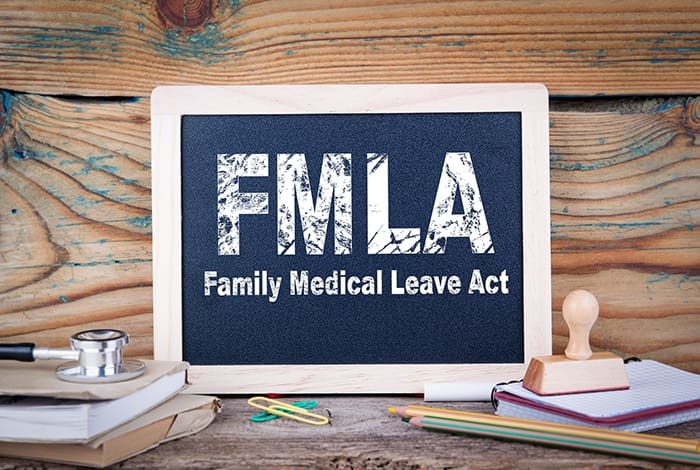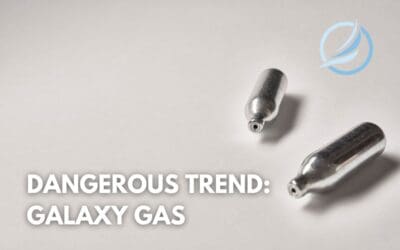What is FMLA?
The Family Medical Leave Act gives covered employees the right to unpaid, job-protected leave for specific health reasons. It allows them to continue getting group health insurance coverage the same way they would if they had not taken leave. Additionally, it helps ensure that the patient will still keep their job as they are receiving treatment.
The only issue is that not everyone and every need is eligible for the FMLA. There are certain conditions for it to be used. Some of the requirements for coverage are:
- Working for a covered employer
- Work for that employer for 12 months or more (not necessarily consecutively)
- Work for a minimum of 1250 hours in the 12 months before their leave
- The employer has at least 50 employees hired
- All employees of that employer work in a 75-mile radius of the workplace
“Covered employers” can be many different types of companies: private-sector employers with 50+ employees working for 20 or more weeks a year; public or private schools (primary or secondary); local, state, or federal government agencies.
In a 12-month period, a person can get either twelve or twenty-six weeks of leave under FMLA for addiction treatment. The amount of time a person will get depends on the reason for absence from work. In fact, there are many different motives for leave where FMLA would apply, such as:
- Birth and care for a newborn baby (for less than a year)
- Taking in an adoptive or foster child (for less than a year)
- Need to take care of a family member (only immediate relatives, like children, spouses, parents)
- Any exigencies involving the person or family member arising from active military duty
- Major health issues stopping the employee from doing their job
There is one case where one might get twenty-six weeks of leave in a 12-month period. They can if they need to take care of a covered servicemember with a serious injury or illness. However, that person would have to be a direct family member – spouse, parent, or son/daughter.
FMLA For Addiction Treatment
It is possible to use FMLA for addiction treatment purposes. Addiction is considered a disease just like any other. In fact, it has been proven that it can affect a person physically, emotionally, and even mentally. It can keep someone from being able to function normally and fulfill their activities. Because of that, it is possible to use FMLA for addiction treatment benefits.
But it is important to understand two things. First, if you request time off due to substance abuse, FMLA doesn’t protect you from denials or other actions. You must first claim the FMLA when requesting leave the first time. Secondly, if your employer previously established the right to fire due to substance abuse, FMLA can’t protect you, either. It is vital that you talk to human resources and read on your employer’s FMLA policy before taking action. That way, you can be sure of your rights and that you won’t lose your job.
A person will usually get 12 weeks off from work for their needs, and that includes FMLA for addiction treatment purposes. That can be all at once or incrementally, but it has to be taken within a year in total. It will be unpaid leave, so there is no compensation in that time period. Therefore, it is important to have a financial plan before starting treatment.
Keep in mind that these are the rights guaranteed by FMLA. Some employers might be willing to negotiate or find a way to give an employee more time off. So while you might claim FMLA for addiction treatment, that doesn’t mean you cannot do things differently. It is more than common for employee and employer to try to come to an agreement.
However, there’s an important condition to use FMLA for addiction treatment: staying sober. If a person is ever caught abusing any substances and/or relapsing, they can lose the benefits from FMLA. An employer has the right to fire them if they desire, even if rights have been already granted.
Other Legal Protections
A person does not only get protection from FMLA for addiction treatment. Other acts might also protect your rights and give you opportunities while ensuring no discrimination. While there might be other acts and laws that do that, there are two that are as important as FMLA:
Americans With Disabilities Act (ADA) – The ADA was made to ensure that employers can’t discriminate against those with disabilities. Furthermore, it requires them to give potential employees with disabilities the same opportunity as those without it. It also states that employers should give them reasonable accommodations so that they can do their work. They cannot be hired, fired, or discriminated against based on their disabilities.
Rehabilitation Act – This act applies to federal employers and public or private employers that receive contracts, aid, or grants from the federal government. It prohibits discrimination based on disabilities, which includes addiction is many cases.
While the first act was not made to target addicts specifically, it does protect people struggling with addiction. Under the ADA, substance abuse disorders are considered disabilities. So people struggling or diagnosed with addiction can benefit from this act. If they are looking for help, they are protected by the ADA. Still, this only applies if the person is not currently abusing any substances. If they are, the employer can, in fact, fire them if they see it fit.
Employers may stipulate in hiring contracts the right to request random toxicology screens. That said, if any turn out positive, they have to right to fire an employee even under the ADA. The same applies should the employee cause problems at the workplace while intoxicated.
Treatment Options Under FMLA
The 12 weeks, roughly 3 months, might seem like a short amount of time to get treatment. However, there are program options where a person can get treatment under that period of time. There are a few ways to go about it, and it would depend on the person’s condition. Also, the period for detoxification should be taken into consideration. One might only be able to start detoxing once they are on FMLA for addiction treatment, and it takes a few days.
First, you must consider inpatient treatment options. These are intensive, 24-hour programs that require full stay at the facility. While they are recommended for severe cases, it is possible to enroll due to the amount of time you have available. Residential treatment is especially ideal for those who are still experiencing intense withdrawal symptoms. Some programs might be as short as 28 days, while others might last longer. There are plenty of 3-month options available.
Next, there are outpatient programs. These do not require the patient to stay in the facilities for treatment. They can go home every day and only need to come back for sessions of treatment. Service settings options include partial hospitalization programs and intensive outpatient programs. They mainly differ in the number of times and hours a week a patient needs to dedicate to treatment. They are recommended for milder cases, or people transitioning back to their everyday lives.
Now, it is possible to “mix” the two options in order to get efficient treatment under FMLA for addiction treatment. For instance, you may start with an inpatient program, and then transition into an outpatient one. That way, you can continue treatment while working, since symptoms are not as intense and neither are the hours required for treatment.
However you choose to get treatment, only a professional can tell you how long it should be and what would be best for you. Claiming FMLA for addiction treatment comes with limitations. But it is important to follow through with instructions and to prioritize your health. About 40% to 60% of recovering addicts relapse as is. So not finishing treatment makes it very likely that a person will relapse.
Find The Help You Need At The Freedom Center
Balancing work life and getting help for addiction can be very tricky. There is only so much you can take, and that applies both for work and for your health. But dealing with addiction is a way to improve not just your quality of life, but your professional life, too. If you are looking into getting help by claiming FMLA for addiction treatment, we at The Freedom Center can help.
At our center in Gaithersburg, we can make an assessment and help you find out what your options are. If you only have the 12 weeks given by FMLA for addiction treatment, don’t worry. We can guide you through your options, and find a way for you to continue treatment if needed after that period.
Visit our website and contact us today if you have questions or want information. You can also call us by dialing (888) 530-5023. Our team of trained professionals is available to guide you and answer anything you want to know. There are plenty of ways to get treatment while working, and your work life doesn’t need to be an obstacle.

































